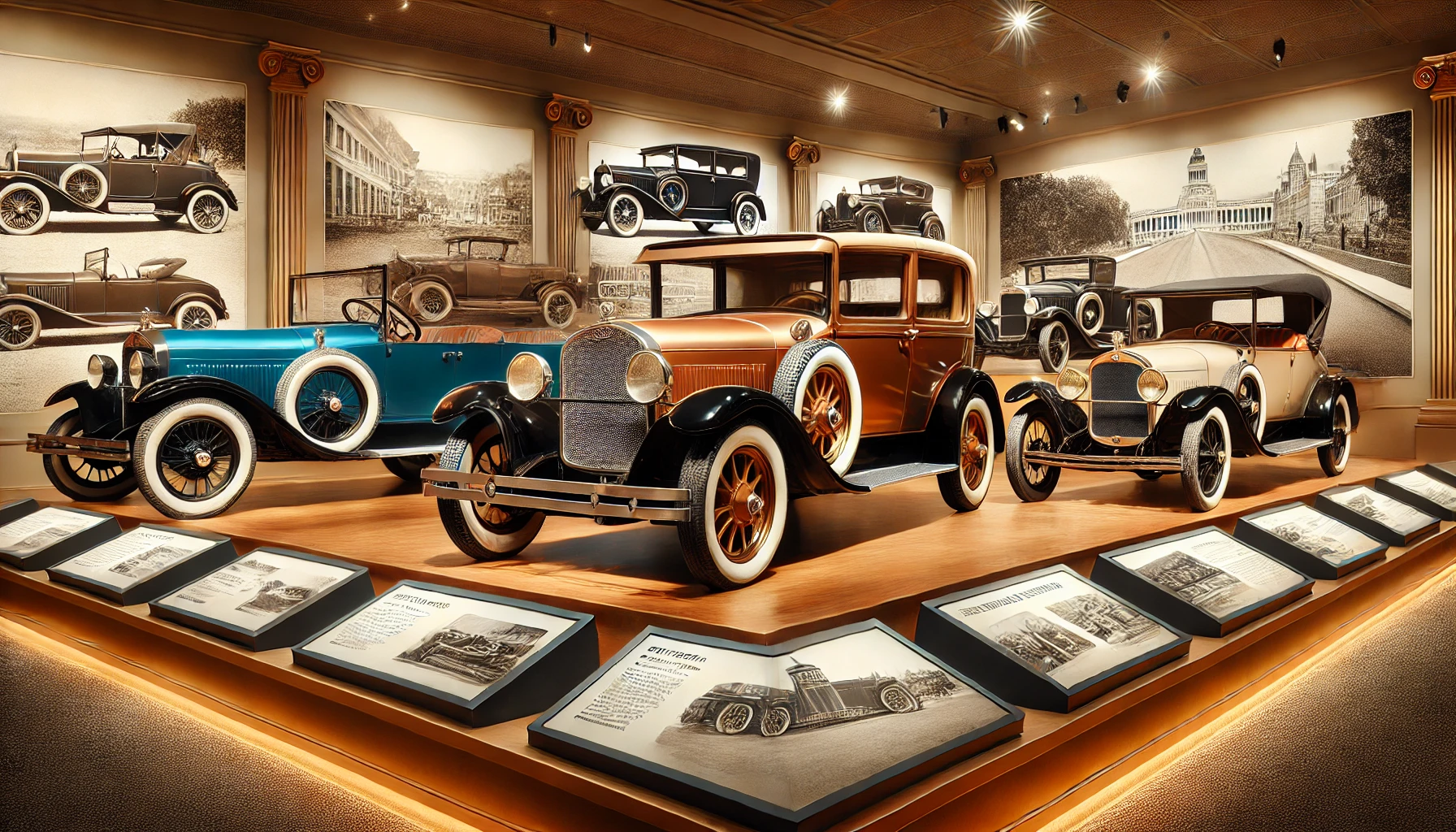Classic cars aren’t just about nostalgia and style; they’re also a smart investment for those who appreciate craftsmanship and rarity. Unlike modern vehicles that depreciate over time, classic cars often gain value, making them attractive to collectors and enthusiasts. If you’re new to investing in classic cars, here’s why they’re a great option and how to get started.
1. Why Invest in Classic Cars?
Classic cars have unique qualities that make them a worthwhile investment:
- Appreciation Over Time: Unlike standard cars, many vintage models increase in value due to their rarity and historical significance.
- Tangible Asset: Unlike stocks or cryptocurrencies, a classic car is a physical asset you can enjoy while it appreciates.
- Cultural and Historical Value: Many classic cars have fascinating backstories that appeal to collectors and enthusiasts.
- Passion and Profit: Investing in classic cars combines a love for automobiles with the potential for financial gain.
Example: The Ferrari 250 GTO, once sold for $18,000 in the 1960s, is now worth tens of millions of dollars.
2. Factors That Influence a Classic Car’s Value
Not all classic cars are valuable investments. The following factors play a crucial role:
- Rarity: Limited production numbers or models with unique features tend to have higher value.
- Condition: Cars in excellent condition, especially those with original parts, are more desirable.
- Provenance: A car’s history, including previous owners or use in famous events, can boost its value.
- Popularity: Iconic models, such as the Ford Mustang or Porsche 911, attract a broad range of buyers.
- Restoration Quality: High-quality restorations that maintain the car’s authenticity add significant value.
3. How to Choose the Right Classic Car to Invest In
Investing in classic cars requires careful consideration. Here are some tips to help you choose the right vehicle:
Start with a Budget:
- Determine how much you’re willing to spend, including purchase price, restoration, and maintenance costs.
Research the Market:
- Study auction results, collector trends, and price guides to identify potential investments.
- Focus on brands and models that have consistently shown appreciation in value.
Inspect the Car:
- Examine the car’s condition, paying attention to the engine, bodywork, and interior.
- Look for matching serial numbers on parts to confirm authenticity.
Consider Maintenance Costs:
- Some cars, like Ferraris, have higher upkeep costs than others, which should be factored into your decision.
Tip: Consult with classic car experts or hire an appraiser to evaluate the car before purchase.
4. Where to Find Classic Cars for Investment
Classic cars are available through various channels. Here’s where to look:
- Auctions: Reputable auction houses like Barrett-Jackson, RM Sotheby’s, and Bonhams often feature investment-grade vehicles.
- Private Sellers: Online platforms like Bring a Trailer or Hemmings allow buyers to connect directly with sellers.
- Car Shows and Events: Attending classic car events gives you the opportunity to network and discover hidden gems.
- Dealerships: Specialized dealerships often have well-documented classic cars for sale.
Tip: Verify the car’s history and documentation before finalizing any purchase.
5. Tips for Maintaining Your Investment
To preserve and increase the value of your classic car, proper maintenance is essential.
Regular Maintenance:
- Keep the car in good running condition by servicing it regularly.
- Use high-quality parts to maintain authenticity.
Storage:
- Store your car in a climate-controlled environment to protect it from humidity, temperature changes, and pests.
- Use a breathable car cover to shield the vehicle from dust and scratches.
Documentation:
- Keep detailed records of maintenance, restoration, and ownership history.
- Document any modifications or repairs with photographs and receipts.
6. Risks and Challenges of Classic Car Investment
As with any investment, there are risks involved. Be aware of the following challenges:
- Market Fluctuations: Classic car values can be influenced by trends and economic conditions.
- High Maintenance Costs: Some models require expensive parts and specialized labor.
- Limited Liquidity: Selling a classic car can take time, as finding the right buyer may require patience.
- Counterfeits: Be cautious of fake or poorly restored vehicles that don’t meet original standards.
Tip: Diversify your investments to balance the risks associated with classic cars.
7. The Joy of Owning a Classic Car
Beyond financial returns, classic cars offer unique experiences:
- Driving Pleasure: Feel the thrill of driving a car with timeless design and engineering.
- Community Connection: Join car clubs, attend events, and connect with other enthusiasts.
- A Piece of History: Owning a classic car allows you to preserve a piece of automotive history.
Conclusion
Classic cars are more than just investments—they’re a blend of passion, history, and craftsmanship. With careful research, planning, and maintenance, they can be a rewarding addition to your portfolio and your life. Whether you’re a beginner or a seasoned collector, the journey of investing in classic cars is as exciting as driving them.








